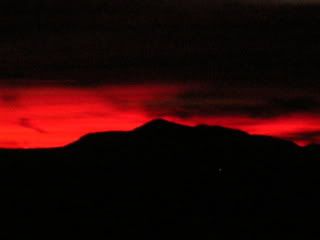Last Week
These days are running together. I try to call Melissa and its hard to get a hold of her, not a promising sign. I try payphones and locutorios, indoor phone booths, to no avail and then I go back to email. I set up a date, an appointment she calls it, and the distancing has officially commenced. We meet in San Telmo at a mediocre café and it feels a little off. It may be the persistent crick in my shoulder that is healing very slowly and putting a damper on my mood. Or else it could be the stale medialunas and disappointment, mine, her’s, or me sensing and reacting to her’s. Nevertheless I get the feeling that this will be the last afternoon I’ll be spending with her and that’s the correct notion.
We take the subte to vast and snooty Palermo District and to the modern visual a rts museum, LUBA, where she can’t get enough of the crazy shit pasted and random scribbles framed and put on the walls, and I have a hard time understanding, but I’m in no mood for debate, so I politely agree. We head to the museum gift shop and I look over her shoulder at a nude photo book of stars and prostitutes until the movie begins.
rts museum, LUBA, where she can’t get enough of the crazy shit pasted and random scribbles framed and put on the walls, and I have a hard time understanding, but I’m in no mood for debate, so I politely agree. We head to the museum gift shop and I look over her shoulder at a nude photo book of stars and prostitutes until the movie begins.
Rio Arriba, a documentary about Iruya highlighting the exploitation of the sugar industry there, is genuinely affecting and one of the best things about the museum that day. The shaman and spokesman for the people of Iruya who I met a month and a half earlier is highlighted in the film. I met him in the San Isidor cultural center that day and drank coffee with him in Iruya. My time in Argentina is unifying strangely. The story is an old one: the gringo stealing the land from the peasants and renting it back them with the sweat of their labor, hardship and blood.
him in the San Isidor cultural center that day and drank coffee with him in Iruya. My time in Argentina is unifying strangely. The story is an old one: the gringo stealing the land from the peasants and renting it back them with the sweat of their labor, hardship and blood.
The traditional farming terraces, with their tenders working the plantations, washed away in tremendous mudslides, erosion events known as volcanoes to the people. They were indebted to the company store and grew even more dependent on the sugar plantations once their former livelihood was washed down the river. Technology eventually made the slave labor obsolete and the people returned to their diminished land and diminished futures.
We take the subway back and say some compulsory goodbyes with a promise for a future meeting that will never happen. So it goes.
I return to LUBA a couple of more times to buy a Rio Arriba CD and to watch a silent Western in the auditorium accompanied by a live band playing the background music. I watch a few movies of varying quality. Little Miss Sunshine is a black comedy gem. The Secret Life of Words is sad and reminds me of the recent history of Argentina with its torture and executions, and I feel the undercurrent of sadness that must still be alive here.
I chronicle the stencils and graffiti along the streets passing more Pizza cafes and parillas then would seem supportable even in a giant city like Buenos Aires, but they almost always have a decent crowd. For the most part the weather is stifling. I find a percussion performance one night on Sarmiento, off of Corrientes in an industrial yard. The music is infectious among the crowd which includes a sizeable hippy following.
Sometimes I’m bored, sometimes frustrated with the pollution and the traffic and throngs. I never find myself in the mood for one of the adopted national dishes, Milanesa. I’m being antisocial at the hostel. My heart isn’t in it and I need to conserve money regardless. The soccer championship passes and I watch the waning minutes with Boca faltering, just as they did two months ago, but even this seems like a depleted experience. I’m merely waiting out my time. I’m getting a little restless to move on to the next step in my life, wanting it to be a true step, not one that is disingenuous to myself.





























